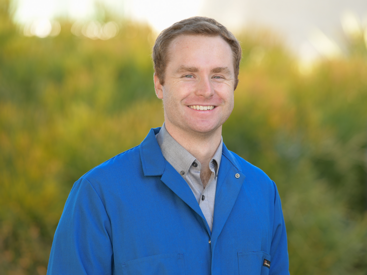UCR Graduate Student Ryan Drover Selected as Science Policy Scholar-in-Residence with the National Science Policy Network

CE-CERT is proud to announce the selection of Ryan Drover, a UCR graduate student, as a Science Policy Scholar-in-Residence by the National Science Policy Network (NSPN). The NSPN SciPol Scholars program, designed to foster essential skills in science policy and communication, has chosen Ryan as part of its cohort, which commenced the six-week bootcamp course during the week of October 2.
The NSPN provides training and engagement opportunities in science policy for early career scientists and engineers. The highly competitive and prestigious SciPol Scholars program focuses on equipping participants with vital skills in science policy and communication. Ryan, along with the rest of the cohort, will immerse himself in a comprehensive curriculum centered around the theme of "Policy for a Healthier Society." This unique opportunity will enable the scholars to explore the intricate landscape of health policy, understand its global impacts, and develop crucial policy writing skills. The scholars will also have the chance to network with professionals in the science policy domain, enhancing their understanding and perspective in the field.
“We are incredibly proud of the selection of Ryan Drover as a Science Policy Scholar-in-Residence,” says Dr. Don Collins, CE-CERT Director and Professor. He continues, “Ryan’s accomplishment reflects the high standards of excellence we uphold at CE-CERT and UCR. This achievement demonstrates our commitment to cultivating the next generation of environmental engineers who will make a meaningful impact on the world.”
Upon completion of the bootcamp course, Ryan and his fellow Scholars will be eligible for placement with a partner organization of their choice for a residency project in 2024. This real-world experience will provide him with hands-on exposure to the intersection of science and policy.
When asked about the impact this opportunity might have on his career, Ryan emphasized, “There's an immense need and value-add opportunity for trained scientists at all levels of policy.” He highlighted how his involvement with the UCR Science to Policy (S2P) program laid the foundation for his venture into science policy. Ryan's enthusiasm for science policy remains strong, and he encourages fellow students to consider similar pathways. For aspiring students looking to get involved, the UCR Science to Policy certificate program is currently accepting applications for its Winter 2024 cohort until October 27th, 2023. This 10-week program will train grad students to interact with policymakers and gain science policy, education, advocacy, and communication skills to translate science into public policy or pivot to policy careers. Additionally, CE-CERT’s SPEAKS program offers another avenue for those interested in science policy, providing valuable opportunities for students to engage with real-world policy challenges and develop practical skills in the field.
Ryan also shared exciting news about the NSPN National Science Policy Symposium scheduled for April 2024 at UCR. This event promises a wealth of opportunities for scholars to engage with the science policy community. Ryan emphasized the event's student and early-career focus, making it accessible and appealing to a wide range of participants. He encouraged everyone, regardless of their prior involvement in science policy, to attend and be part of this enriching experience.
Overall, Ryan Drover's selection as a Science Policy Scholar-in-Residence with the NSPN marks a significant milestone not only in his academic journey but also in the advancement of science policy at CE-CERT. His story serves as an inspiration for aspiring engineers, scientists, and policy enthusiasts, demonstrating the opportunities that await those willing to bridge the gap between science and policy. As Ryan embarks on this exciting venture, the UCR community eagerly anticipates the positive impact he will make in the world of science policy.